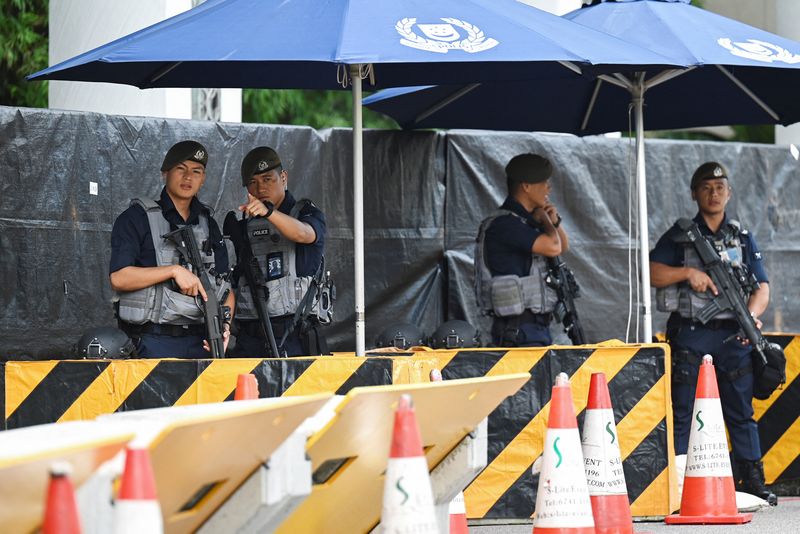By Joe Brock and Kanupriya Kapoor
SINGAPORE (Reuters) -Australian Prime Minister Anthony Albanese on Friday called for greater engagement between the United States and China, saying a breakdown in dialogue between the superpowers could have devastating consequences for the world.
The relationship between the United States and China is at its lowest point in decades, as they remain deeply divided over everything from the sovereignty of Taiwan to cyber espionage and territorial disputes in the South China Sea.
Speaking at the opening of the Shangri-La Dialogue security summit in Singapore, Albanese said he supported U.S. President Joe Biden's efforts to open channels of communication with China.
"If you don’t have the pressure valve of dialogue ... then there is always a much greater risk of assumptions spilling over into irretrievable action and reaction," Albanese told a ballroom packed with defence officials and diplomats from around the world.
"The consequences of such a breakdown – whether in the Taiwan Strait or elsewhere - would not be confined to the big powers or the site of their conflict, they would be devastating for the world," he added.
Intensifying competition between the U.S. and China is expected to dominate proceedings at the summit. China's Minister of National Defence Li Shangfu had this week declined an invitation to meet there with U.S. Defense Secretary Lloyd Austin.
On Friday, the two shook hands on the sidelines of the conference but the two did not have a "substantive exchange," the Pentagon said.
Austin is set to address the summit on Saturday before Li delivers his own speech on Sunday.
IMPROVED CHINA RELATIONS
Albanese's comments come as Australia is seeking to stabilise its own relationship with China after a three-year diplomatic freeze and trade blocks that Beijing is now easing.
China buys the bulk of Australia's valuable iron ore and is its biggest trading partner.
"We have an improved relationship with China, we want to cooperate where we can with China," Albanese said. "The dialogue had broken down; now there is dialogue."
The United States is Australia's biggest security ally, and Beijing has criticised a deal announced in March to buy U.S. nuclear-powered submarines.
Australia is set to spend A$368 billion ($250 billion) over three decades on the submarine programme, part of a broader security pact with the U.S. and Britain known as AUKUS.
Australia is also part of the Five Eyes intelligence collection and sharing network, along with the U.S., Britain, Canada and New Zealand – a grouping that Chinese officials say is part of the West’s lingering “cold war mentality” and an attempt to contain its rise.
"In boosting our nation's defence capability, Australia's goal is not to prepare for war, but to prevent it through deterrence and reassurance and building resilience in the region," Albanese said.
($1 = 1.4743 Australian dollars)
